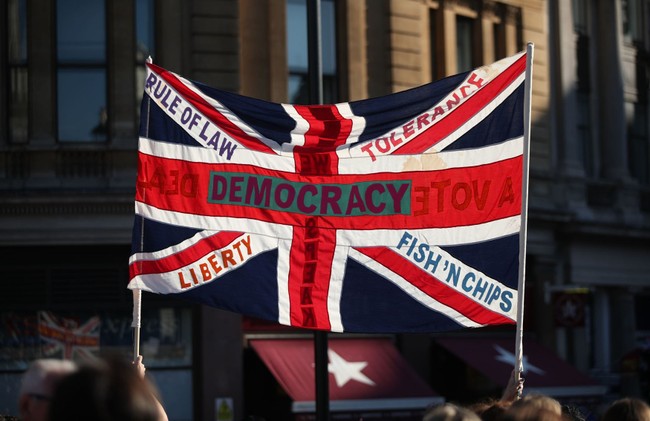


According to the European Parliament, one of the legislative bodies of the European Union (EU), the “EU aims to make globalisation work by maximising its opportunities and mitigating its negative effects” while using “its trade policy to promote and protect human rights in non-EU countries.”
Although that sounds like a benevolent endeavor, it is an incomplete picture of what the EU is seeking to accomplish in its quest for twenty-first century Euro green globalism.
Euro globalism is not a new concept. It has a long and sordid history that spans centuries and includes many dark episodes like African colonialism and the Opium War in China.
For reasons unknown, Europeans have a proclivity for wanting to run the world.
After Nazi Germany’s defeat in World War II, Europe’s ability to steer the world in the direction it desired came to a crashing halt. Europe was literally destroyed during the war. The United States, showing genuine benevolence, helped rebuild Europe, even Germany.
In the years after WWII, Euro globalism has taken a different tack. Rather than acting on their own accord, many European nations banded together and formed a bloc: the European Union. Over the years, as more nations joined the EU, its worldwide leverage and power grew. Today, about a decade after the United Kingdom’s Brexit, the EU is the second-largest economy in the world behind the United States.
For the past few decades, Europe has also been ground zero for the international global warming/climate change movement. European elites, with help from their allies in the United Nations, have pushed the climate alarmist narrative and crafted several binding agreements to curb the use of fossil fuels.
Recommended
From the Kyoto Protocol to the Paris Climate Accords to absurd Net Zero regulations, Europe has been at the forefront of using climate change as a pretense to push its globalist agenda.
By doing so, European elites can pat themselves on the back for “saving the planet” while their policies wreak poverty and impede progress in developing countries that are still struggling to reach first-world prosperity standards.
The EU’s claim that its trade policies are intended to protect human rights in non-EU nations is not true. In reality, the EU’s trade policies perpetuate slave and child labor practices in places like the Democratic Republic of the Congo and Xinjiang, China.
The EU’s globalization agenda is all about using climate change as a guise to restrict personal freedom for the masses through draconian policies that force behaviors the elites believe are best, like enforcing electric vehicle mandates while eliminating access to gasoline-powered transportation.
Another method to increase its global influence the EU has pioneered in recent years is the use of environmental, social, and governance (ESG) scores and calls for a stakeholder economy.
The World Economic Forum (WEF), founded in 1971, was created to promote “stakeholder responsibility, the concept that companies, in addition to generating economic prosperity, have a responsibility towards society and nature.”
Today, the WEF is a highly influential organization that holds annual meetings in Davos, where thousands of multinational CEOs, academics, and government leaders discuss and decide on worldwide issues.
Over the years, the WEF’s stakeholder economy vision and the use of ESG has infiltrated the United States. During the Biden years, when many of these ideas were formally enacted, the price of energy skyrocketed. According to a Heartland Institute report, “Biden’s Energy Policies Directly Cost U.S. Households More Than $2,548 Since 2021.”
It also must be mentioned that the so-called green transition, which has been underway in Europe for quite a while, has led to massive power outages, chronic shortages, and a decrease in living standards for middle- and lower-class Europeans. It has also produced problems with agriculture and many other economic sectors.
The most recent EU scheme to impose what the WEF once called the Great Reset is the advent of a legislative behemoth titled the Corporate Sustainability Due Diligence Directive (CSDDD).
As my colleagues at The Heartland Institute note in a recent policy study about the CSDDD, “It is not hyperbolic to say the CSDDD is one of the most economically restrictive and nakedly authoritarian laws in the history of western democratic civilization. The directive attempts to globally institutionalize sweeping ESG objectives by mandating practices for large companies doing business in the European Union, regardless of whether those companies are headquartered in the EU. Even worse, the CSDDD forces those companies to impose the same standards on many of the businesses operating within their global supply chains— fundamentally transforming all social and economic activity around the world. It is one of the gravest threats to freedom that Americans face today.”
The good news is that Europe’s green globalist vision seems to be headed nowhere with President Trump back in the White House.
Unlike Biden, Trump is a climate realist who understands that affordable and reliable energy is essential. Trump is unleashing American energy and playing hardball with the EU regarding trade.
This is welcome news for those of us who watched in horror as the Biden administration worked hand in hand with the EU to promote their green transition and new world order.
Chris Talgo (ctalgo@heartland.org) is editorial director at The Heartland Institute.

